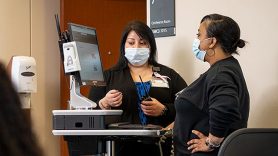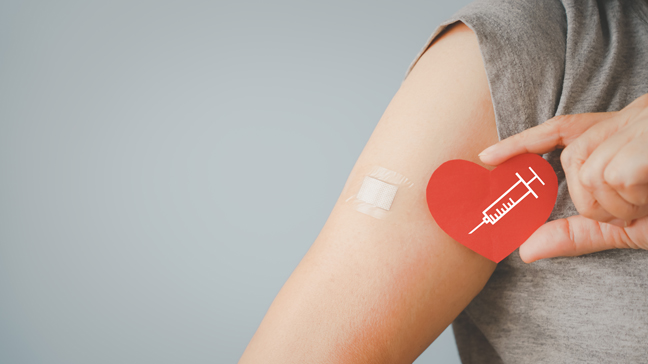- Diseases
- Acoustic Neuroma (14)
- Adrenal Gland Tumor (24)
- Anal Cancer (68)
- Anemia (2)
- Appendix Cancer (16)
- Bile Duct Cancer (26)
- Bladder Cancer (72)
- Brain Metastases (28)
- Brain Tumor (232)
- Breast Cancer (714)
- Breast Implant-Associated Anaplastic Large Cell Lymphoma (2)
- Cancer of Unknown Primary (4)
- Carcinoid Tumor (8)
- Cervical Cancer (158)
- Colon Cancer (166)
- Colorectal Cancer (116)
- Endocrine Tumor (4)
- Esophageal Cancer (44)
- Eye Cancer (36)
- Fallopian Tube Cancer (8)
- Germ Cell Tumor (4)
- Gestational Trophoblastic Disease (2)
- Head and Neck Cancer (12)
- Kidney Cancer (128)
- Leukemia (342)
- Liver Cancer (50)
- Lung Cancer (286)
- Lymphoma (278)
- Mesothelioma (14)
- Metastasis (30)
- Multiple Myeloma (100)
- Myelodysplastic Syndrome (60)
- Myeloproliferative Neoplasm (4)
- Neuroendocrine Tumors (16)
- Oral Cancer (100)
- Ovarian Cancer (172)
- Pancreatic Cancer (160)
- Parathyroid Disease (2)
- Penile Cancer (14)
- Pituitary Tumor (6)
- Prostate Cancer (146)
- Rectal Cancer (58)
- Renal Medullary Carcinoma (6)
- Salivary Gland Cancer (14)
- Sarcoma (238)
- Skin Cancer (296)
- Skull Base Tumors (56)
- Spinal Tumor (12)
- Stomach Cancer (64)
- Testicular Cancer (28)
- Throat Cancer (92)
- Thymoma (6)
- Thyroid Cancer (96)
- Tonsil Cancer (30)
- Uterine Cancer (80)
- Vaginal Cancer (16)
- Vulvar Cancer (20)
- Cancer Topic
- Adolescent and Young Adult Cancer Issues (20)
- Advance Care Planning (10)
- Biostatistics (2)
- Blood Donation (18)
- Bone Health (8)
- COVID-19 (362)
- Cancer Recurrence (120)
- Childhood Cancer Issues (120)
- Clinical Trials (630)
- Complementary Integrative Medicine (22)
- Cytogenetics (2)
- DNA Methylation (4)
- Diagnosis (232)
- Epigenetics (6)
- Fertility (62)
- Follow-up Guidelines (2)
- Health Disparities (14)
- Hereditary Cancer Syndromes (126)
- Immunology (18)
- Li-Fraumeni Syndrome (8)
- Mental Health (116)
- Molecular Diagnostics (8)
- Pain Management (62)
- Palliative Care (8)
- Pathology (10)
- Physical Therapy (18)
- Pregnancy (18)
- Prevention (914)
- Research (392)
- Second Opinion (74)
- Sexuality (16)
- Side Effects (604)
- Sleep Disorders (10)
- Stem Cell Transplantation Cellular Therapy (216)
- Support (402)
- Survivorship (320)
- Symptoms (182)
- Treatment (1786)
Remembering the day MD Anderson began vaccinating cancer patients against COVID-19
2 minute read | Published December 21, 2021
Medically Reviewed | Last reviewed by an MD Anderson Cancer Center medical professional on December 21, 2021
I’ve been working at MD Anderson for 16 years, and our patients’ experience here is very important to me. So, when I was asked to help coordinate our COVID-19 vaccine clinics for MD Anderson’s cancer patients, I jumped at the opportunity.
By the time we offered the first patient vaccination clinic on Jan. 23, 2021, a lot of our patients had been feeling afraid for nearly a year. Cancer treatments had left many immunocompromised, which meant they were more likely to develop severe infections, experience complications, or even lose their lives if they contracted COVID-19.
That’s why most patients were really excited when the vaccines finally became available. And they were thrilled when we were able to provide one. I felt so honored to give our patients that reassurance, since much of the pandemic has involved constantly adapting as the situation evolves. As our Chief Operating Officer Rosanna Morris once noted, “It’s like building a plane while we’re flying it.”
Our patients are our top priority. It’s been amazing to witness our clinicians’ passion for their patients, and their determination to get people the protection they need. After vaccines were made available for immunocompromised people, our leaders formed a committee of doctors to review all of the medical evidence and how vaccines may affect patients with different types of cancers and treatment. They wanted to make sure we were explaining the vaccines accurately and providing clear answers to any questions our patients might ask. At the same time, a team formed to develop our patient vaccine clinic operations.
Our Facilities and logistics teams — as well as UTPD — have also been incredible partners to our clinical teams. They put so much effort into making sure the vaccine clinics ran smoothly and securely. Patients and employees alike have raved about how well they were organized. Many described the process as both fast and easy.
It was really exciting to be a part of history when our frontline health care workers were vaccinated at MD Anderson last year. But even better was the looks on patients’ faces as they’ve received the vaccine. They have all been so incredibly grateful. And I am very proud to have been a part of that.
Jesseka Landin is associate project manager in Clinical Operations at MD Anderson.
Schedule a COVID-19 vaccine at MD Anderson online. Current patients may schedule their vaccines by logging into MyChart.

They have all been so incredibly grateful.
Jesseka Landin
Associate Project Manager, Clinical Operations






